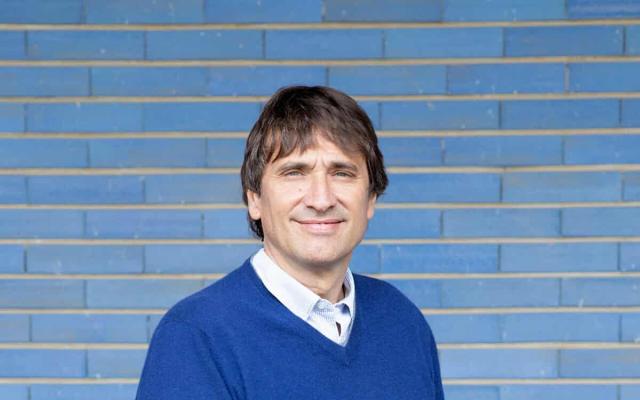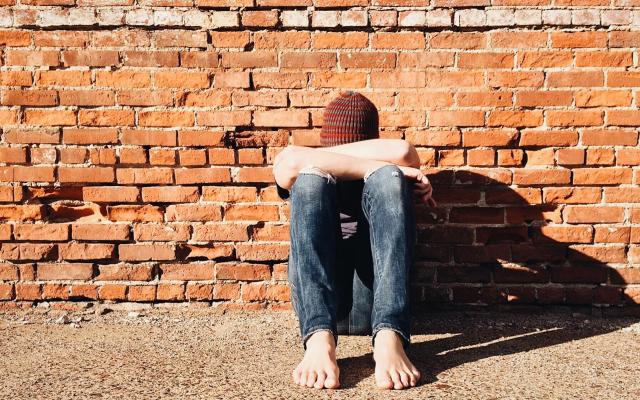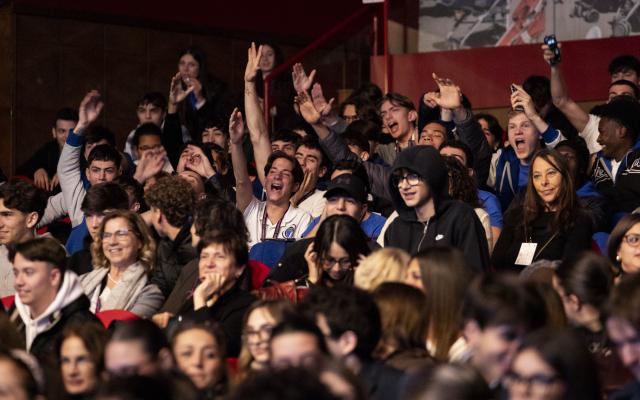Project Viral but Healthy aims to raise the awareness of young men and women and their families on the importance of preventing infectious diseases and related risks. The project is divided into various modules. The first meeting, which will be held on Thursday, October 31, will be an introductory lab to understand the mechanisms of health communications held by Coach Nicoletta Vulpetti. Other speakers include Immunologist Deborah Arceri and researchers Ilaria Zanardi and Valeria Cagno who created the first Italian podcast with scientific content.
Fifty students from classes 4SB and 3SD at the Liceo Scientifico Vito Volterra in Ciampino (Rome) will participate. They are coordinated by Natural Sciences Professor Michela Gasparini.
![]() AGENDA
AGENDA
9.30 | Students Arrive
9.45 | Prevention as seen by ...
Project Introduction
Moderator: Cecilia Stajano, School Innovation Manager, Fondazione Mondo Digitale
10.00 | From the Point of View of Research
- Scientificast
11.00 | From the Point of View of Medicine
- Deborah Arceri
12.00 | From the Point of View of Communications
- Nicoletta Vulpetti
12.30 | Q&A
1.00 | Conclusion
![]() PROJECT PROFILE
PROJECT PROFILE
VIRAL BUT HEALTHY
Making Correct Information on Health Contagious
“Viral but Healthy” is a Fondazione Mondo Digitale Project developed thanks to funding from MSD Italia. The objective is to develop an awareness raising programme on the risks and prevention of infectious diseases that will actively involve young men and women.
CONTEXT
- Less than one out of two Italians understands the correct function of antibiotics (45.4%);
- Last year, 70% of consumers aged 18 and over downloaded at least one app on health, medicine, fitness and well-being;
- Also last year, 8.8 million Italians were victims of fake health news; over 3.5 million parents viewed wrong medical information;
- 82% of Italians does not know how to distinguish fake and reliable news.
Faced with this information overload, how can citizens be helped to correctly interpret news and select the best advice for their health? What role must schools play in educating students to be critical?
OBJECTIVES
- Develop an awareness raising campaign on the importance of prevention;
- Promote correct communications towards youth and their families;
- Promote tools for critical understanding in schools;
- Test innovative methodologies and tools for health education;
- Interest new audiences in scientific contents and research;
- Challenge the Dunning-Kruger Effect (the less we know, the more we are presumptuous) and the damage cause by social media.
ACTIVITIES
The project is based on four actions:
- PRE-LAB: a pilot lab dedicated to 55 students on the mechanisms, tools and techniques of health communication, both on- and off-line;
- WHITE HACKATHON: a creativity marathon to come up with solutions and applications to prevent the most widespread pathologies. At the end of the common work session, the teams will present their ideas through an elevator pitch. A jury will select the winners who will have the opportunity to perfect their idea at the Phyrtual Innovation Gym;
- FAKE NEWS LAB: is immunisation dangerous? Do antibiotics work with any type of infection? How can we understand how reliable news is? A lab to understand the right tools to correctly interpret scientific communication and distinguish reliable from fake news;
- SOCIAL CAMPAIGN: an original course on “transversal competences and orientation” (former ASL) to allow young men and women to understand the white economy. The 60-hour course aims to develop an informational tool to use in schools and on social media.



